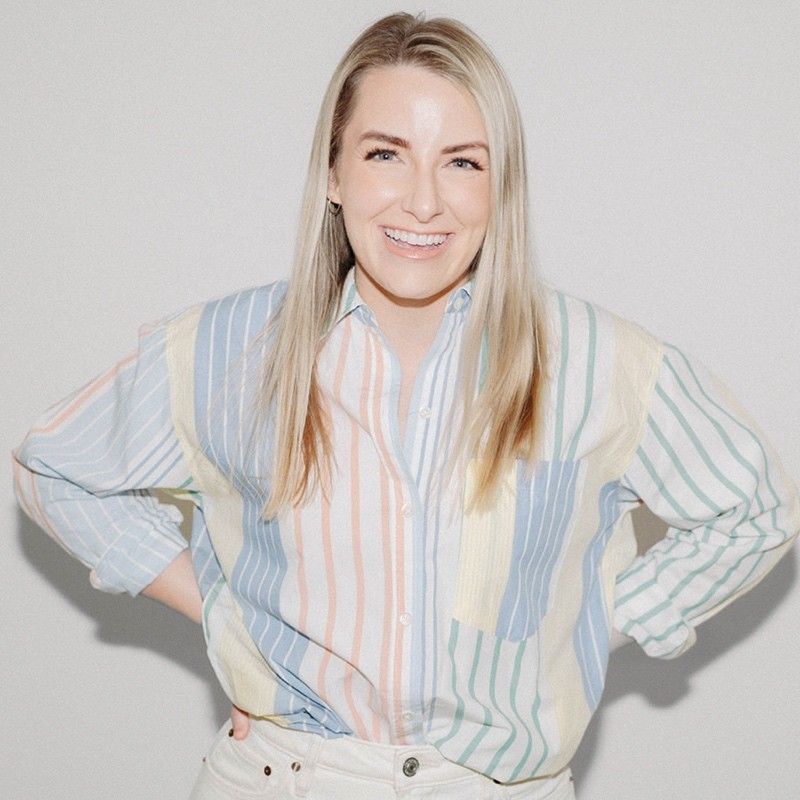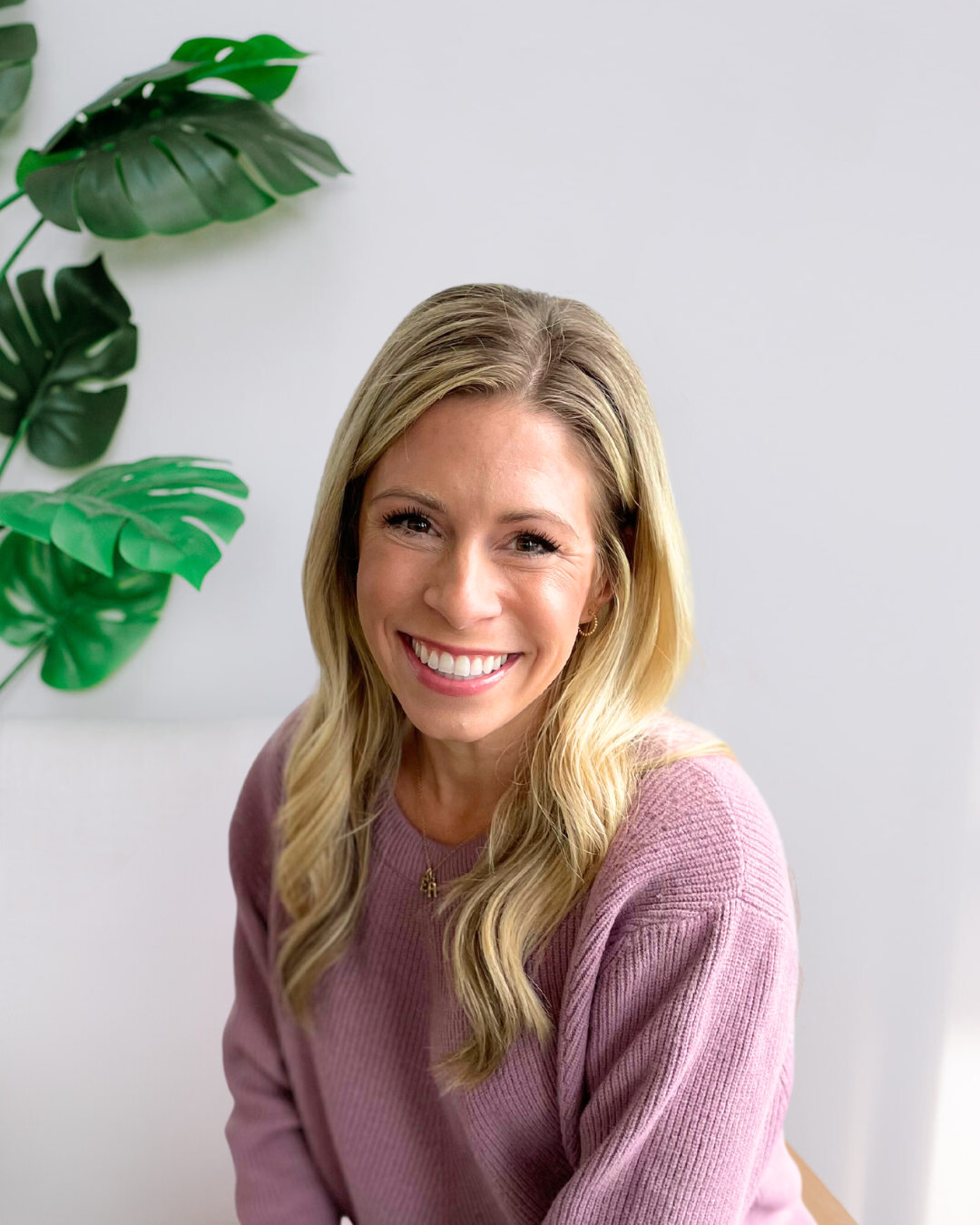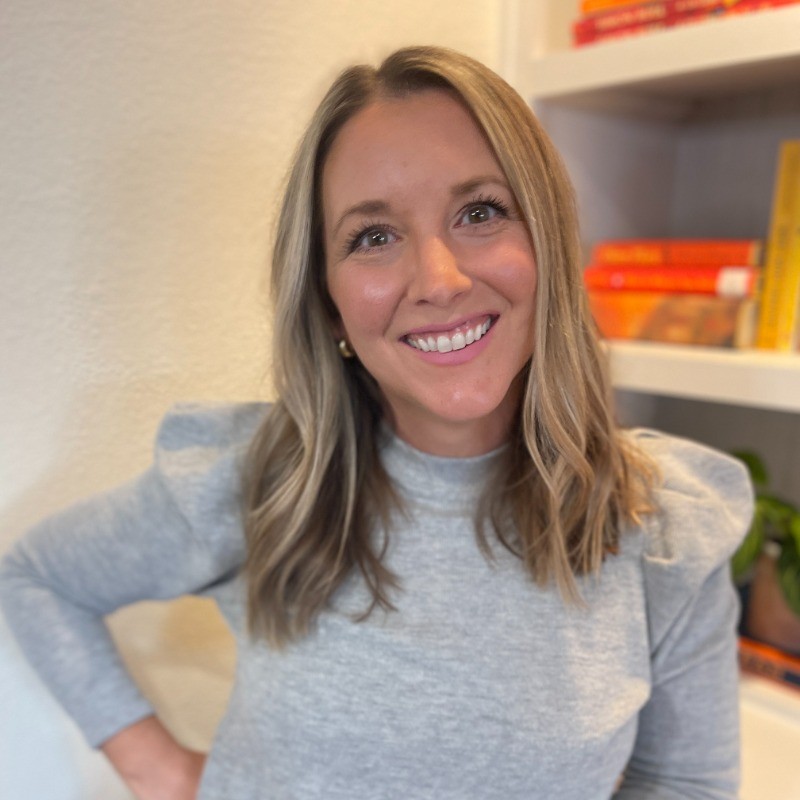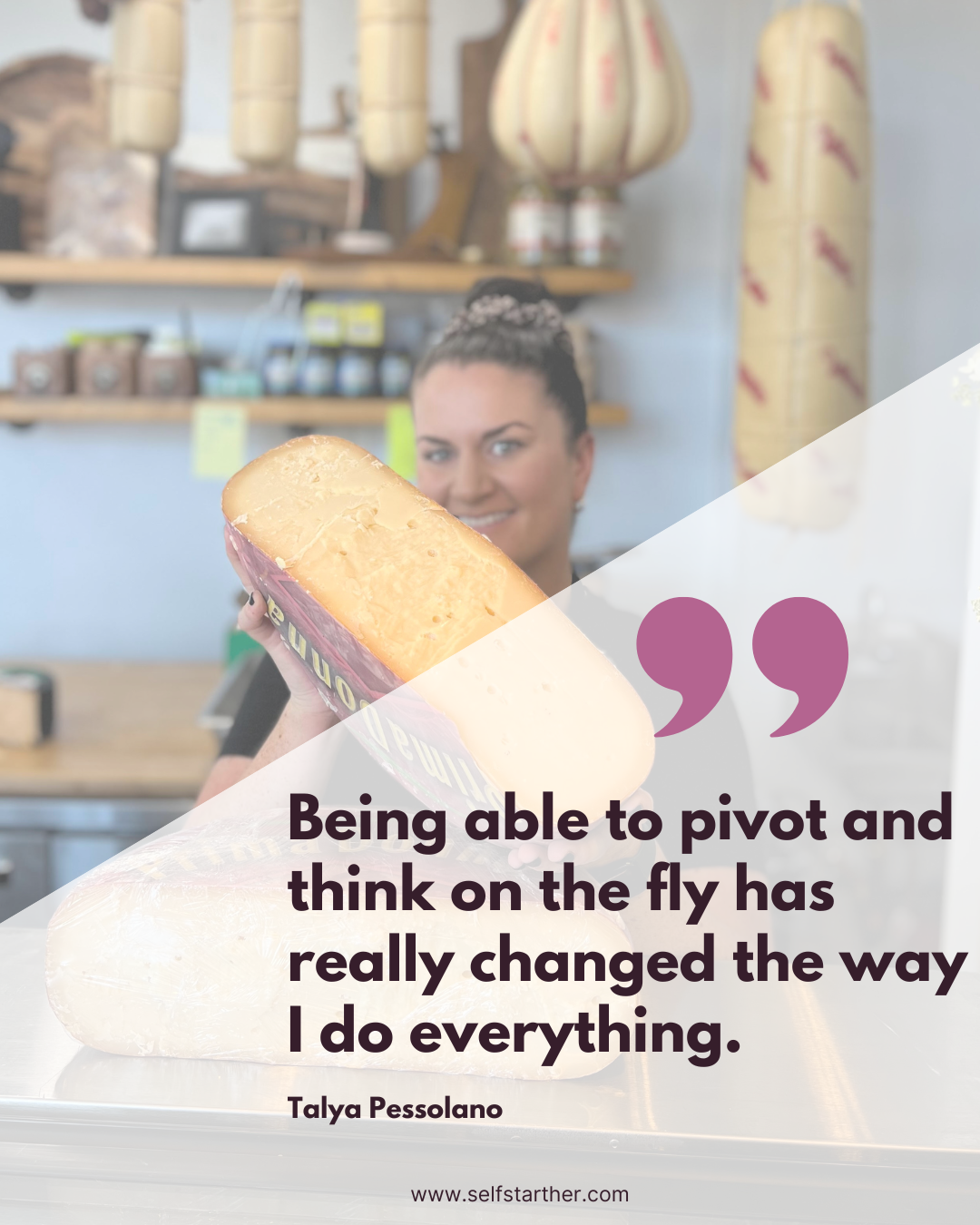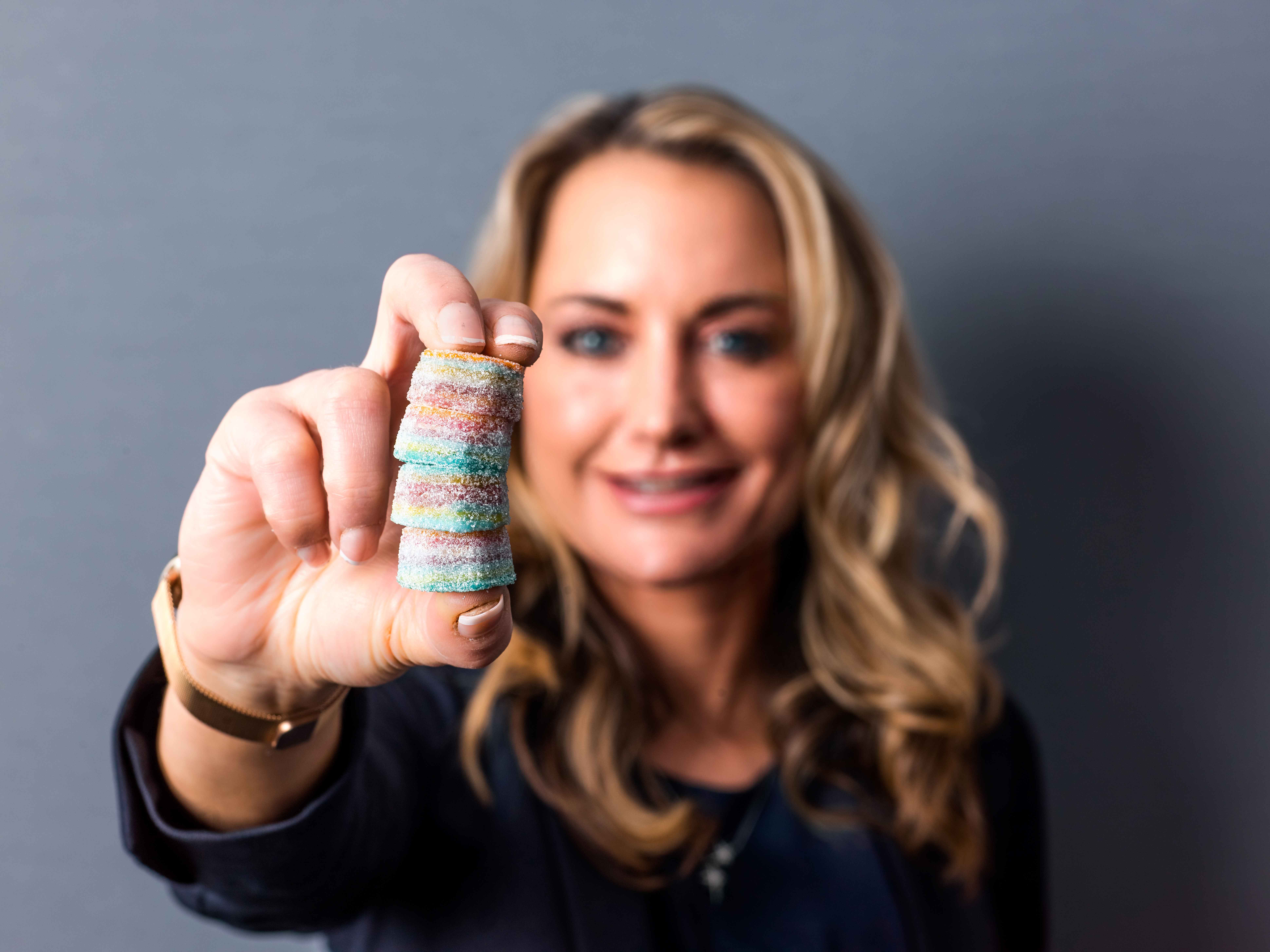Want to start a side hustle without quitting your day job?
In this episode, Morgan Stelly shares her experience of starting a cleaning business as a side hustle while working full-time and why she’s on a mission to help others do the same. She explains the importance of having a backup source of income and why she chose the cleaning industry.
Morgan discusses the different models of running a cleaning business, including subcontracting, and emphasizes the importance of managing risk.
She also highlights the benefits of outsourcing tasks and leveraging her corporate job to reinvest in her business.
Morgan now helps others, through her coaching programs, start a side hustle without quitting by establishing their own cleaning businesses.
Key Takeaways:
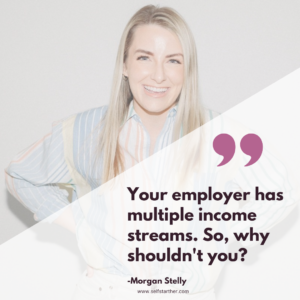
- If your employer has multiple revenue streams, so should you.
- It’s doable to start a side hustle without quitting your full time job.
- Starting a cleaning business can be a low-risk side hustle with low startup costs.
- Outsourcing tasks and leveraging a corporate job can provide the time and resources needed to grow the business.
- Imperfect action is better than inaction when starting a business.
Learn more about Morgan:
Visit Morgan’s website and receive her free resources
SPECIAL OFFER FOR SELF STARTHER LISTENERS: Want to start a side hustle without quitting your jog? Apply for Morgans 1 on 1 program and received one month of free coaching (valued at $1,497) – just mention you heard about her on this show!
Stay Connected with Self StartHER:
Subscribe to the Self StartHER podcast for more inspiring episodes.
Follow Self StartHER on Instagram for updates and behind-the-scenes insights. https://www.instagram.com/selfstart.her/ Check out the Self StartHER website for the latest resources. www.selfstarther.com
Transcript
Megan Tobler (00:01.097)
Well, Morgan, I have to say today is a first for self -starter because we have a twin for the first time. You are actually the sister of Katherine Rossi, who was in episode 58. So I have to give a big shout out to Katherine for introducing us today. So shout out to Katherine and welcome to the show,
Morgan (00:17.666)
Yes. Thank you so much, Megan. It’s so nice to be here.
Megan Tobler (00:22.065)
It’s nice to have you, but I know your business is completely different than Katherine’s. You are two uniquely different people in the most wonderful of ways. So I’d love to learn a little bit more about Morgan and your business that you’ve started.
Morgan (00:35.582)
Yeah, so I still work full time. So maybe I can start a little bit with that. So I work in the energy industry for a large oil and gas company. My career is mostly in marketing and human resources. And now I work in change management, which is really fun. And then about a little over a year ago now, I started a cleaning company and then
Just a couple recently, I started helping other people start their own businesses. So I have a couple irons in the fire and I know that a lot of people listening, they also work full time and they might be interested in starting a side hustle. So I can’t wait to tell you and your audience about how they can do it too.
Megan Tobler (01:21.651)
Yes, I’m particularly interested in how you’ve been leveraging both and really why you’ve been able to or why you’ve decided to be able to leverage both. So can we go ahead and dive into kind of the why behind why you decided to start the side hustle?
Morgan (01:35.704)
Yeah, that’s a great question. I all of 20 starting in 2023, I just started to think, gosh, like my employer could let me go at any time. And I literally have nothing to protect myself in case I lose my only source of income. And I started looking at potentially acquiring businesses, but because the interest rates are so high because of the environment right now, the economic environment, I decided to start my own instead. And home services are just, your services are always in need. Everybody needs some type of home service. Technology can’t replace you, which is awesome. So the demand for home service type of work is always really high. And I’m… pretty risk averse, which maybe your audience can relate to. Like I didn’t want to take the risk of quitting my job to start something on my own. I wanted to have the security of the nine to five of my corporate job while also starting something on the side. And I felt like this was the least risky way. Another thing about a cleaning business is it’s really capital light when you get started. need a lot of money or equipment to get started. So it just kind of was the best of both worlds. I could do it after work and I also have a lot of flexibility with my job. So that helps me too.
Megan Tobler (03:16.755)
I think that’s really smart because I don’t know if you know this about my story, but I was actually laid off not once, but twice. And I didn’t have an additional source of income for the first time. The second time I did have my husband to rely on, but it’s definitely scary, especially right now. It is definitely an employer’s market where they have the pickin’ of the litter at this point. So it is unfortunately a huge reality that we’re having to face as employees. hat future or past generations really didn’t have to worry about. They were able to get a job and be there until they eventually retired. And it just doesn’t work that way anymore. So I think that it’s unfortunate that we have to think this way, but it’s also so smart. I know that I do want to dive a little bit more into the actual cleaning side of the business, but your sister is also very entrepreneurial minded. So
Morgan (04:09.901)
Yeah.
Megan Tobler (04:13.593)
Is this something that was kind of ingrained in both of you from an early age or where did this come from?
Morgan (04:20.448)
That’s so funny you asked that because it’s really not like it’s it’s so funny because and I don’t I don’t hear a lot of people say this like we are motivated by money and I totally think that that’s okay to admit money makes your life so much easier and we meaning my sister and I are trying to understand like how can we crack this code because sticking with
just your corporate job, I don’t think you’ll ever have this like rich life, right? And, or this free life or however you define as like freedom or being work optional or just having a little bit more flexibility in your life. And our dad was, he’s very traditional baby boomer. He had worked at the same, he actually worked at the company that I work at now for like 20 something years. and then he retired. So
Like he’s one of those people that’s like you work, you you go to school, you get good grades, you get a good job, your company is going to take care of you. And that’s just not the case anymore. I mean, you see all over that layoffs are very common now for our generation. there’s a lot of, you know, noise around artificial intelligence and how that is going to affect the way that we work. And
My company is doing this too. There’s the cost of labor in the U S is really expensive compared to other parts of the world. And so there’s a lot of offshoring that’s going to be coming, particularly like India and the Philippines. And my company is doing this today. So we didn’t grow up, I guess, with that in mind, but we have motivations to make enough money to live the lives that we really, really want to live.
Megan Tobler (06:09.821)
I think that’s very admirable for you to admit because I think that a lot of people do want the money, but they’re afraid to actually say it out loud. And there is nothing wrong with wanting money because money brings you freedom and comfortability and security. And as women, especially, I think if we can be able to bring this in and support ourselves if we need to for any reason, I think that’s a really powerful and liberating thing to be able to have. So I don’t think that.
bad to say whatsoever.
Morgan (06:41.386)
Yeah, sorry I interrupted you, but I also, you your employer has multiple income streams. They’re gonna have multiple lines of business. So like, why shouldn’t you? And the reason why they do that is because they wanna, they want to decrease their risk. So if you have all your eggs in one income stream, that’s a lot of risk to hold on to. So why not diversify and spread your risk across multiple methods and.
One, where you’re not really in control of what happens in the end. The second one, the one that you own, you are in total control.
Megan Tobler (07:15.645)
Yeah, and I you said that you are not risk adverse, but starting something new, there is always a level, an element of risk involved. So how did you get through kind of that?
I don’t even know how to put it, but the potential like risk adverseness that you naturally face, if that’s even the word. Adversity, thank you.
Morgan (07:37.324)
Yeah, adversity might be the word you’re looking for. Yeah, yeah. So I actually am pretty risk averse. Like I don’t, like I didn’t want to take out a loan. And I think that it is something that you have to accept even now in my businesses in the cleaning business and the now I help people, the coaching side, I want to.
reduce the amount of risk as much as possible. You cannot. The cleaning business has like really low operational and financial risks relative to other types of businesses. So if you’re wanting to start like an e -commerce business, you might have to invest a lot in inventory, right? There’s no such thing in the cleaning business. You
The client books your service, they give you a credit card on file, the cleaner goes to clean, to perform the service, and then you charge the customer. And you’re only paying, I’m only paying my cleaners when I have jobs. So if I need to pay someone, that’s awesome because that means I’m getting jobs. it’s, the financial risk is quite low. I don’t have a physical space. I don’t have a vehicle. I think like eventually I might have something like that, but in the beginning you don’t need those things.
and the operational risks are quite low. The only thing that could happen is someone goes into a home and they break a glass or they break a vase or something. I’ve not had that happen ever. And even if that happens, I have insurance. So I have what I need to protect myself and my business in the case that I need it. But in the end, the risks are quite low relative to other types of businesses.
Megan Tobler (09:22.991)
And you said something that I really wanna make sure that we highlight. And you said your staff, like your cleaning staff, like you, even though you started a cleaning business, you’re actually not going in and cleaning the homes and the residences yourself. You have people that are working for you. So let’s talk about that decision and how you really brought that to fruition.
Morgan (09:34.242)
That’s right.
Morgan (09:40.662)
Yep.
Morgan (09:46.858)
Yeah, so there’s really like many ways you can run a cleaning business. I choose to run a subcontractor model. So basically, I work with people I have like a network of cleaners who maybe have their own clients, they have their own schedules, and they’re just looking to get more jobs. So I kind of am like a referral agency. And, you know, I get bookings and I have basically like a, it’s like a marketplace where people can pick up the jobs, and then I pay them a commission on the job.
and then you could have employees as well. might move towards more of the employee model and there’s advantages and disadvantages of both types, but yeah, I’ve never cleaned a house like in the history of my business and I don’t plan to, there’s tons of people out there that they love doing this type of work and they need you to help them get more jobs.
Megan Tobler (10:39.495)
Now, I understand that you had mentioned that the home services business is a relatively low risk thing and low entry point in order to get into it from a financial perspective. But how did you think about actually going into this from a subcontractor standpoint?
Morgan (10:57.3)
Yeah, that’s a great question. So in my opinion, the subcontractor way is a bit quicker to start up. So if you think about like the pros and cons of the two models, if you have an employee, there’s usually people who are looking for part -time or full -time work. So you’re having to pay them an hourly wage when maybe you don’t have work coming in. So you need to provide the supplies. You might need to provide transportation or reimburse them for mileage.
But if you have the subcontractor model, it’s quicker on the start up because those people who are looking for more jobs, they have their own vehicle, they have their own supplies. It is a bit more expensive. Like your gross margins are squeezed a little bit more in the subcontractor model, but it is a bit easier if you’re a beginner to start that way and then eventually maybe move to the employee model or have a mix of both because
Having the subcontractors is a really flexible labor model. And if you’re kind of low on jobs for a week, that’s fine because the subcontractors are getting jobs from elsewhere. They’re working on their own schedules. And so you’re not having to pay them for their hours when you don’t have jobs. There’s just a more flexible, easier to start up model.
Megan Tobler (12:17.691)
It’s brilliant, especially when your time is limited when obviously you’re also working the nine to five, you’re able to tap into this network of people that already have started their own business. But now I’m curious, how are you getting the leads to actually get the homes to clean to be able to then subcontract out?
Morgan (12:27.768)
Mm -hmm.
Morgan (12:35.316)
Yeah, there’s many different strategies you can work with, but they kind of fall into four buckets. So the first one is going to be your warm leads, right? So these might be friends, family, people in your network that you can sell on your services. A lot of the people that I, they’re a client of mine are my neighbors. I myself pay someone to come from my own company to clean my house. So
you can reinvest your own money in your business, friends and family. And then the second kind of bucket is going to be on the cold outreach side. This works mostly with commercial clients. So local businesses, you can go around and introduce yourself, give your business card, try to build a relationship with kind of the people that own local businesses or
like are in your area. And the third bucket is going to be paid ads. This is the quickest way to scale your business. So that’s where probably the most investment is, is going to be in the paid ads. And then you always need to make sure people know that you’re human and you’re real. And that comes with posting on your social media platform. So I have my cleaning company has an Instagram and a Facebook page. The content is not beautiful, but
You know, you can post on there and people will search you or find you online and they’ll, okay, a human runs this company.
Megan Tobler (14:10.697)
Well, on all of this, even though you’re not physically going in and cleaning the residences and the commercial buildings yourself, like this still takes a lot of time and you are working that nine to five jobs. So how are you leveraging both?
Morgan (14:26.232)
Yeah, that’s a great question. So in the beginning, it was quite tough because I didn’t know what I was doing. Getting things started probably like an hour or two a day, like I would say 10 to 15 hours a week is where I spent my time. There’s a couple things in the beginning that are quite tricky, like the booking platform. my gosh, like it took a while for me to kind of catch on what was happening there. But in the night, you know, at night and on weekends, I don’t have
kids are a partner. So I really was able to focus on kind of getting that set up. And then now, because I understand how the flow of the business works, I have a virtual assistant that manages any sort of like inbound traffic over the phone. So she comes in a couple hours a day, she does my social media, she returns missed phone calls, she helps coordinate with the cleaners and
with our clients and so she does a lot of the heavy lifting. So I don’t have to be in the business every day. There’s still some work I need to do on marketing and some business development, but 80 % of the day -to -day operations she’s managing without me, which is awesome.
Megan Tobler (15:40.945)
And, it took a lot of foundational support at the very beginning. Like you really had to lay the groundwork there. So at the very beginning, it sounds like that’s where you really had to kind of hustle, work the longer hours while you’re also doing your job, your full -time job. But you eventually were able to get to a place where you were able to outsource. And I’m a firm believer that it takes money to make money. And I think that’s one of the things with you working your corporate job is that you are able to have a really comfortable.
Morgan (15:46.775)
Yeah.
Morgan (16:03.511)
Yes.
Megan Tobler (16:10.533)
salary that you can reinvest into your business. And there’s also not that sense of if you mentioned like sometimes maybe there’s some lighter weeks than others. And that’s like the benefit of having the subcontractors. Like if you’re not fully booked for that week, you’re not in panic mode because you know you have your corporate salary there to like be that buffer essentially. But I think with as far as the assistant, I think especially as
Morgan (16:27.116)
Yeah, exactly.
Megan Tobler (16:38.035)
people are starting their business, they think that they have to do everything themselves and they’re just working themselves to the ground. And that doesn’t have to be the case. That’s not why we’re all starting these businesses. If most people are wanting more time, not less of it. And so to outsource early on is just a huge takeaway that I think I just want to like stop and pause and like let people know that you can have a successful business and kind of give away some of these reins, but, still like do really well.
Morgan (16:55.597)
Yeah.
I agree.
Morgan (17:06.84)
Yeah, I totally agree. And I just remembered I wrote this down. So I want to put in perspective like how long it took me to get like from the moment I filed for my LLC to the moment I got my first booking was 105 days. So like about that’s three and a half months, more or less. So three and a half months of just kind of grinding. And then, okay, I got my first like I launched and I got my first booking in the grand scheme of things.
when you’re in it, it sucked. Like, and I didn’t know what I was doing. I had nobody to help me 105 days. But in the grand scheme of things, that’s a really fast startup. If you’re thinking like kind of in business terms, like tell me another business that you can get a client in from knowing nothing to in 105 days. Like it’s rare, I think.
Megan Tobler (18:00.073)
was pretty unheard of.
Morgan (18:02.488)
Yeah, so if you’re listening and you don’t think you can do it, I’m telling you, you can do it. You can do it really fast. The people that I work with now, my record is 38 days of people getting their first client.
Megan Tobler (18:17.257)
That’s amazing. And so it was 105 days before you got your first client, but you have now scaled your business to hit multiple five figure months. So how long did it take you from when you filed your LLC to when you were able to consistently hit that number?
Morgan (18:26.38)
Mm
Morgan (18:33.418)
Yeah, so it was, it wasn’t right away. And I, want to set expectations really transparently that it’s gonna take, it could potentially take a while for you to get there. I think it took me a long time to kind of optimize my operations. And also in the beginning, I didn’t have like a great team. Now I have a great team and I started bringing in.
commercial clients. So in the beginning, I was like, I’m only going to do residential jobs, like only homes. And then after a while, I started to realize commercial clients are the secret sauce to any sort of like, I’ll use home service and quotes here, but like in general, like these services, like the B2B market is awesome because they’re higher ticket. And so it took me a really long time to really accept.
that I needed to be more open to commercial clients as well as, you know, we are in a pay to play world and I really resisted investing in ads. And then I also worked with my own business mentor, someone who’s really successful in the home service space to kind of help validate some of the things that I was doing. So it didn’t happen right away, but the quicker you
are pivoting and accept that pay. It’s a pay to play. got to spend money to make money and where you can kind of make sure your sales process is refined, the quicker you’re going to make it to six figure or sorry, five figure months. And it doesn’t require many clients. If you’re just thinking on the residential side, just some basic assumptions, it’s about 30 clients. It’s really a small amount of clients you need.
to make it to over $10 ,000 in a month.
Megan Tobler (20:30.151)
And is that assuming that they’re getting their home cleaned once a month or biweekly or?
Morgan (20:35.576)
Yeah, so most you want to shoot for the biweekly recurring revenue. That’s always the goal. There’s always going to be some one off deep cleans or move in or move out cleans. That number for 30 clients kind of assume some basic. KPI is in terms of like the cost per clean, so if it’s like 250 a clean and you have 70 % recurring customers and 30 % one time cleans, it’s about 27 or 28.
clients. So it’s a surprisingly low number when I when I tell people that.
Megan Tobler (21:10.131)
Yeah, that’s not as many as I would have thought it would be. So that’s really great to hear. But in addition to the actual cleaning side of the business, you also, you had alluded to this earlier, but you’re also teaching people how to actually start these businesses themselves. So let’s move into that because I’m sure people are listening to this now thinking, gosh, I would have never thought about the home services business, but where do I sign up?
Morgan (21:12.768)
Yeah. Yeah.
Morgan (21:35.052)
Yeah, yeah. So yeah, I got my first client kind of by accident. I was browsing these forums where I could buy a company and I made a post and someone inquired and they wanted to go ahead right away. So like I had the worst sales call in the history of sales calls and she still purchased from me. So I think that just goes to show that, you know, people who want to do it are going to
you know, they’re gonna make the, hold on, let me start that over. The people who wanna make it happen are gonna move quick. So yeah, I got my first client and since then I’ve been kind of working, I’ve probably worked with 10 or so, 10 or 10 to 15 clients here in the last year. So I can really only work with a few at a time, cause you know, I work full time. So I try to really keep my cohorts really small so I can spend a lot of time supporting them.
but yeah, I have a 90 day one -on -one experience that people go through. And in the first 30 days, we work on getting your business infrastructure set up. also set up your booking platform, which is one of the trickiest points of the business. And then in the second 30 days, so 31 to 60, we work on hiring really great people. You only need about two to three cleaners, which is also surprising. You only need two or three people in the beginning. And then.
In the last 30 days, we do a 30 day marketing sprint where we combine those four elements that I spoke about earlier, warm outreach, cold outreach, paid ads, and content to start to attract your dream clients. And typically people are up and running in about 60 days. And like I said, the record I have for someone getting their first client is about 36 or 38 days. I can’t remember. think 38, 36 or 38. I can’t remember.
Megan Tobler (23:28.519)
Either way, that’s extremely impressive.
Morgan (23:31.32)
Yeah, I love when my clients message me and they get their first booking. They’re like so excited. And I think one of my star clients so far, he’s still in the program. Him and his wife are at over $80 ,000 in annual recurring revenue in under 45 days. So this is, and they had no business experience. They work, they both work full time. They both, they have two kids and
they are just killing it. So like, if that sounds like you and you’re listening, like let this be proof that you can do this too.
Megan Tobler (24:08.659)
Wow, can I just mic drop that right now? End of episode. No, seriously, Morgan, this is just goals. Like completely a transformative business. Something that, like someone, if they wanted to quit their job off of an eight thousand dollar, you could. And it’s like, I know you have a quote when I clicked into your link here. It said,
Morgan (24:10.44)
Yeah.
Morgan (24:23.158)
Yeah, you definitely could.
Megan Tobler (24:34.953)
Oops. Ashley, my podcast editor, please edit out this awkward pause. It said, start your 10 K plus month cleaning biz. No experience cleaning or quitting required. And that’s exactly what this conversation has proved. Like exactly that. That quote is everything that we just talked about right now. You didn’t have cleaning experience. You didn’t quit your corporate job, but you could at this point. It’s from what it sounds like.
Morgan (24:39.372)
you
Morgan (24:54.167)
Yeah.
Morgan (25:01.794)
Mm -hmm.
Megan Tobler (25:01.816)
And clearly that your star client, like he and his wife, one of them at least could probably quit theirs too. So that just shows you, can seriously start a business doing anything and you niche down and you found a need. And I love, love, love what you did.
Morgan (25:08.994)
Yeah.
Morgan (25:19.904)
Yeah, thank you.
Megan Tobler (25:21.575)
Yes, I could go on all day, but you also have, if people are listening, I know that some people might not be completely ready to jump straight into one -on -one coaching. So you also have a free training. It’s called three steps to start your six figure side hustle. So want to talk a little bit more about that as like an entry point into the cleaning business.
Morgan (25:33.388)
Mm -hmm.
Morgan (25:40.953)
Yeah, if people are curious and I think you’re going to share maybe some links in the show notes so we can, I’ll give you that link to share with people. But yeah, it’s about, it’s I think less than 20 minutes. It just walks you through three main steps to get started. So establishing your business infrastructure, hiring your team and what you need to do in terms of marketing. also answer a lot of frequently asked questions in there.
Yeah, and it just kind of gives you a taste and might help you give the confidence, you know, give yourself the confidence to get started for your for yourself.
Megan Tobler (26:16.281)
And if they want to take it to another level too, you also have your Saturday Side Hustler Community newsletter. So that might be a really great way to get into your network as well.
Morgan (26:22.89)
I do.
Morgan (26:26.808)
Yeah, I have a newsletter. just launched the first one last week. So by the time this airs, hopefully there’s a lot of additions that people can go through. And then I also have some, I have like a 14 day challenge that people can enroll in. It’s 14 days of video lessons and actionable things you can do over two weeks to get your first client in your cleaning business.
And then I also, if you’re ready to work with someone who’s been there, done that, you’re ready to invest in your future. I also work with clients one -on -one. I mentioned that. So as I mentioned, I can’t work with a lot of people at once, so seats are really limited. But yeah, if you’re interested in working together, I’d love to hear from you.
Megan Tobler (27:13.329)
It’s so exclusive. love it. Keep them wanting more. Well, Morgan, I have just absolutely loved our conversation. It has been just like a breath of fresh air. And I guess that’s kind of like playing on the cleaning side of the stuff. My corniness comes out. But like you mentioned, everything’s going to be put in the show notes so they can find you in all the places. But I always like to end with
Morgan (27:15.062)
Hehehehe
Megan Tobler (27:40.733)
piece of advice. So if someone’s listening to this today and is really wanting to start something of their own but doesn’t know what where to start, what kind of advice would you give them?
Morgan (27:50.562)
So this is a surprise question. this is catching me. The first thing that came to my mind is imperfect action is better than inaction. So I think in the beginning, when I first started, I was focusing on getting things perfect before putting it out there. And maybe Megan, you can relate to this. waiting for it to be perfect, one, that will never come. And two, that doesn’t make you money. So.
If your goal is to make money, which that’s my goal, and I’m sure that’s a lot of people’s goals listening, imperfect action beats action every single day and do not wait for things to get perfect or to be unbreakable. Put it out there, test it, get feedback and improve it over time. That would be my main piece of advice.
Megan Tobler (28:40.443)
so good and such a good reminder even to myself because I definitely suffer from a little bit of that. And just in general, even though I say that taking that step is the hardest part. You have to take the step messy or not. Take a step. Yeah, absolutely. Well, Morgan, thank you so much for such a great conversation. I cannot wait to see where your business is even just a year from now. Like what you’ve been able to do already is so impressive. So thank you.
Morgan (28:48.607)
Yeah.
Morgan (28:53.536)
Yeah, yeah, I agree.
Morgan (29:05.964)
Thank you. Yeah, was so nice to be here and yeah, happy side hustling to everyone who’s listening.
Megan Tobler (29:13.907)
Happy side hustling.
